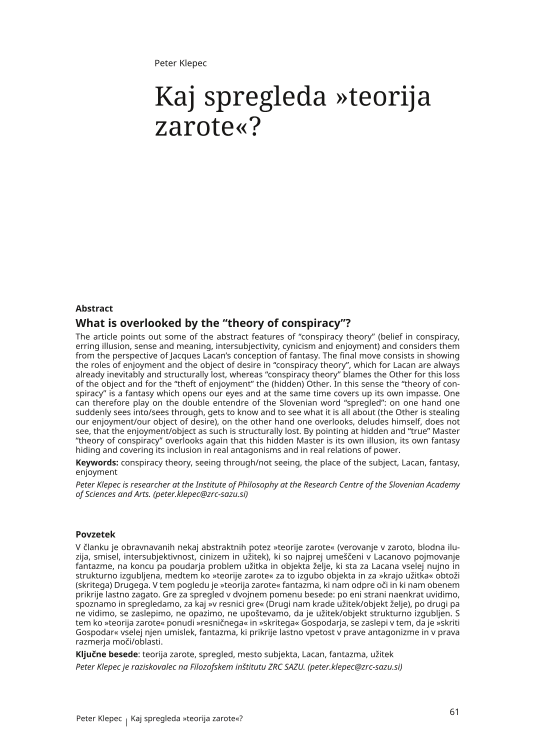The article points out some of the abstract features of “conspiracy theory” (belief in conspiracy, erring illusion, sense and meaning, intersubjectivity, cynicism and enjoyment) and considers them from the perspective of Jacques Lacan’s conception of fantasy. The final move consists in showing the roles of enjoyment and the object of desire in “conspiracy theory”, which for Lacan are always already inevitably and structurally lost, whereas “conspiracy theory” blames the Other for this loss of the object and for the “theft of enjoyment” the (hidden) Other. In this sense the “theory of conspiracy” is a fantasy which opens our eyes and at the same time covers up its own impasse. One can therefore play on the double entendre of the Slovenian word “spregled”: on one hand one suddenly sees into/sees through, gets to know and to see what it is all about (the Other is stealing our enjoyment/our object of desire), on the other hand one overlooks, deludes himself, does not see, that the enjoyment/object as such is structurally lost. By pointing at hidden and “true” Master “theory of conspiracy” overlooks again that this hidden Master is its own illusion, its own fantasy hiding and covering its inclusion in real antagonisms and in real relations of power.




